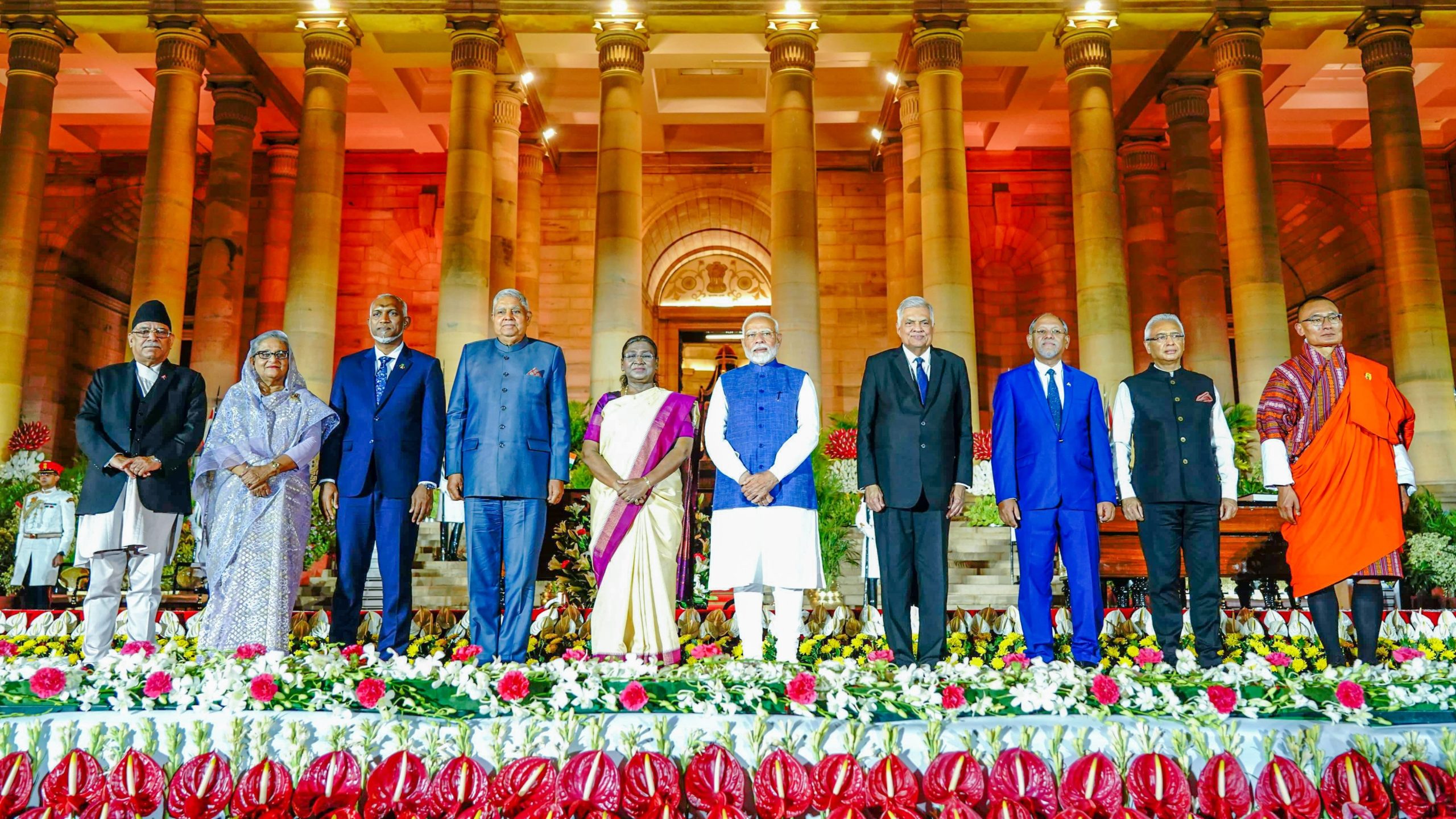 Several South Asian leaders, including Ranil Wickremesinghe, attended Modi's swearing-in ceremony in Delhi.
Several South Asian leaders, including Ranil Wickremesinghe, attended Modi's swearing-in ceremony in Delhi.
President of Maldives, Mohamed Muizzu; Vice-President of Seychelles, Ahmed Afif; Prime Minister of Bangladesh, Sheikh Hasina; Prime Minister of Mauritius, Pravind Kumar Jugnauth, Prime Minister of Nepal, Pushpa Kamal Dahal ‘Prachanda’; and Prime Minister of Bhutan, Tshering Tobgay, had also accepted the invitation to attend. Also in attendance were two of India’s richest industrialists, Gautam Adani and Mukesh Ambani, who are seen to enjoy a close relationship with Modi.
“The visit of the leaders to attend the swearing-in ceremony of prime minister Shri Narendra Modi for his third consecutive term is in keeping with the highest priority accorded by India to its ‘Neighbourhood First’ policy and ‘SAGAR’ vision,” the ministry said.
Earlier this year, Sri Lanka entered into a 20-year power purchase agreement with India's Adani Green Energy, for two wind power stations developed by the company in the North-East. However, Sri Lankan officials have been disgruntled with India's involvement in infrastructure projects and are said to have delayed the fast-tracking of the Mannar wind farm project.
“Some officials are stubborn and not helping to fast track the project,” a cabinet minister told EconomyNext when asked the reasons for the delay.
“Most of them are still living in the past and do not trust India despite this project has direct benefit to the country,” the Minister said referring to anti-Indian sentiment among Sri Lankan bureaucrats following India’s role in Sri Lanka’s 26-year armed conflict.
Though earlier this year the Indian government extended its ban on the Liberation Tigers of Tamil Eelam (LTTE) for another five years, claiming the organisation is still active and “threatens the sovereignty and territorial integrity” of India.
The move came almost 15 years after the 2009 genocide at Mullivaikkal which saw the defeat of the LTTE and the murder of tens of thousands of Tamil civilians.
